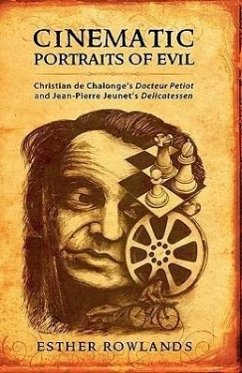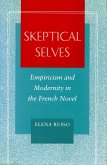The ravages of the First World War ensured that the deeply cherished Enlightenment ideals of reason, individualism, and intellectual supremacy finally crumbled and dissolved. As the Dadaists and Surrealists demonstrated in overtly defiant avant-garde postures and various public spectacles, the essential purposelessness and futility of such unprecedented carnage and bloodshed had finally shattered all intellectual illusions ever pertaining to human meaning and logic. The steady stream of political developments which led to the onset of war were equally incidental and senseless, while incessant killings between deadlocked armies exposed the equal guilt and reprehensibility of all warring parties. Numerous artists--many of whom perished during the war--found themselves involved in the bloody battles, and their chilling accounts--the cultural canons of poems, novels, essays, paintings, and diaries on the horrors of this war--are all dominated by genocidal images of mass human slaughter, inhumane massacre, unspeakable atrocities, and the profound despair that arises from utter senselessness. The Second World War, however, was not simply a repeat of the First World War in terms of its devastating effects, its atrocities, massacres, and widespread carnage. The Nazi era manifested a completely different reality, an unprecedented phenomenon with new and unfamiliar cultural implications. The carnage was not 'senseless', for it was highly rationalized and systematised; bloodshed was motivated by fierce ideological convictions. Many of these ideologies were nourished and inspired by the ideas of Nietzsche concerning the imposition of a 'super regime', able to rise above the restrictive morality of ordinary men. While it is impossible to create a clear division between categories of right and wrong, evil and good, throughout the career of the Third Reich, the ambiguities and perceptions of equal guilt and equal reprehensibility that overshadowed the previous world war were largely absent from the second. Highly masterminded and systematised evil forces were responsible for the bloodshed which took place, for in full operation was a rationalised, strategic regime which meticulously orchestrated, calculated, and supervised a systematic process of ethnic cleansing. The rationale of the concentration camp universe indicates not merely the decline and dissolution of reason in the face of absolute evil, but something other than this, something much deeper. This war was to do with 'presence' rather than 'absence'. It was a war of extreme, conceived purpose involving the presence of a new collective political force and new methods: 'lebensraum', autarky, world domination. This book seeks to establish a new way of examining not only history but contemporary manners of historical representation on film, as well as their cultural and philosophical implications. It aims to advance new ways of investigating the past with films that are, on the surface, only tangentially related to traditional manners of historical representation. The work forwards two unconventional movies Docteur Petiot and Delicatessen as objects of historical film-making. The reasoning for this departure from convention, that the Holocaust itself requires a peripheral, even postmodern approach to not only its representation but that of the past in general. On a more specific level, France during the 1990s experienced a heightened period of political debate regarding its collaboration during the Vichy period. Various contemporary films focused on national complicity and crisis of identity. The two films studied may be viewed as discourses that each relate to this crisis not only in the light of their content but through diversity and departure from accepted traditions within cinematic representation.
Hinweis: Dieser Artikel kann nur an eine deutsche Lieferadresse ausgeliefert werden.
Hinweis: Dieser Artikel kann nur an eine deutsche Lieferadresse ausgeliefert werden.








